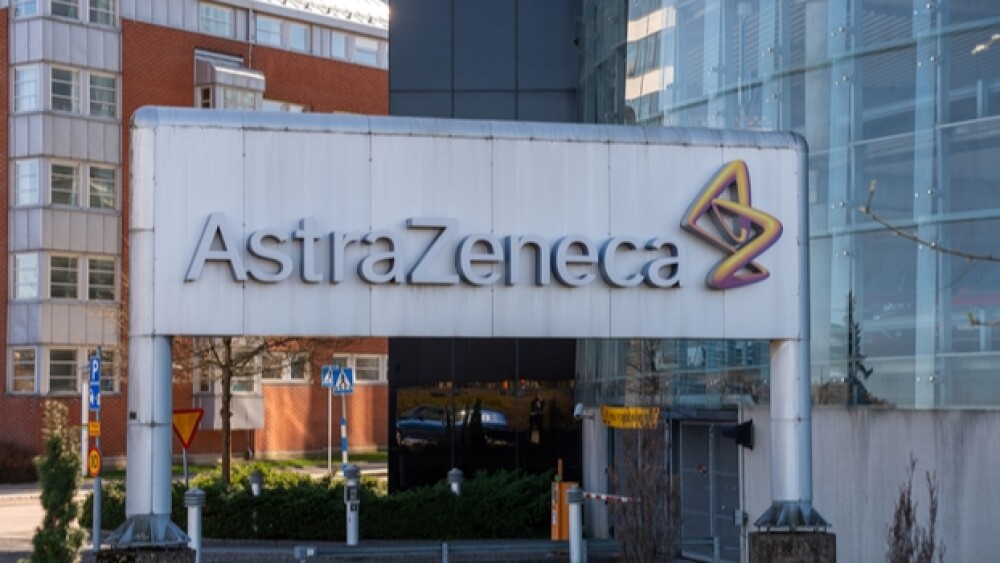Daiichi Sankyo’s and AstraZeneca’s Enhertu (fam-trastuzumab deruxtecan-nxki) has become the first HER2-directed medication approved to treat gastric cancer in the U.S. in 10 years.
Anna in Sweden/Shutterstock
Daiichi Sankyo’s and AstraZeneca’s Enhertu (fam-trastuzumab deruxtecan-nxki) has become the first HER2-directed medication approved to treat gastric cancer in the U.S. in 10 years.
This morning, Daiichi Sankyo announced the U.S. Food and Drug Administration gave the green light to Enhertu for the treatment of adult patients with locally advanced or metastatic HER2-positive gastric or gastroesophageal junction (GEJ) adenocarcinoma who have received a prior trastuzumab-based regimen.
Enhertu, an antibody-drug conjugate (ADC) comprised of a humanized anti-HER2 IgG1 monoclonal antibody was previously approved as a treatment for adults with unresectable or metastatic HER2-positive breast cancer who have had two or more previous anti-HER2-based treatments in the metastatic setting.
Approval in gastric cancer, which is typically diagnosed in the advanced stages, was based on positive results from the Phase II DESTINY-Gastric01 study. In that trial, Enhertu demonstrated a statistically significant and clinically meaningful improvement in overall survival (OS) and objective response rate (ORR) versus chemotherapy in patients with advanced gastric or GEJ adenocarcinoma who had progressed on at least two prior regimens including trastuzumab, a fluoropyrimidine and a platinum-containing chemotherapy.
In the study, Enhertu-treated patients had a 41% reduction in the risk of death versus chemotherapy-treated patients. At a pre-specified interim analysis, those patients treated with Enhertu demonstrated a median OS of 12.5 months compared to 8.4 months with chemotherapy. Trial results also showed a confirmed ORR of 40.5% with Enhertu compared to 11.3% with chemotherapy. Patients treated with ENHERTU had a 7.9% complete response rate and a 32.5% partial response rate compared to a complete response rate of 0% and a partial response rate of 11.3% for patients treated with chemotherapy.
Antoine Yver, Global Head of Oncology Research and Development at Daiichi Sankyo said Enhertu is the first ADC to receive approval in the U.S. for the treatment of patients with metastatic gastric cancer, and represents a major advance in managing this difficult-to-treat disease.
“This second indication in the U.S. represents an important step forward in our ambitious plan to accelerate the development of Enhertu across a broad range of HER2 targetable cancers,” Yver said in a statement.
Dave Fredrickson, head of AstraZeneca’s Oncology Business Unit, said the resulted from the DESTINY-Gastric01 trial highlight the chance to change clinical practice of treating gastric oncology patients with Enhertu. Approximately one in five gastric cancers are HER2 positive, but the outcomes of these patients is fairly grim. Only about 5% of patients survive past five years. In the U.S., it is estimated that 27,600 new cases of gastric cancer were diagnosed in 2020 and more than 11,000 people died from the disease. The 41% improvement in survival and a response rate more than three times higher with Enhertu compared to chemotherapy demonstrate the promise of the medication in this setting, Fredrickson said.
Two additional Phase II trials, DESTINY-Gastric02 and DESTINY-Gastric03, are underway, to further evaluate the use of Enhertu in patients with HER2 positive metastatic gastric cancer. Enhertu is approved with Boxed Warnings for interstitial lung disease (ILD)/pneumonitis and embryo-fetal toxicity.
Featured Jobs on BioSpace





